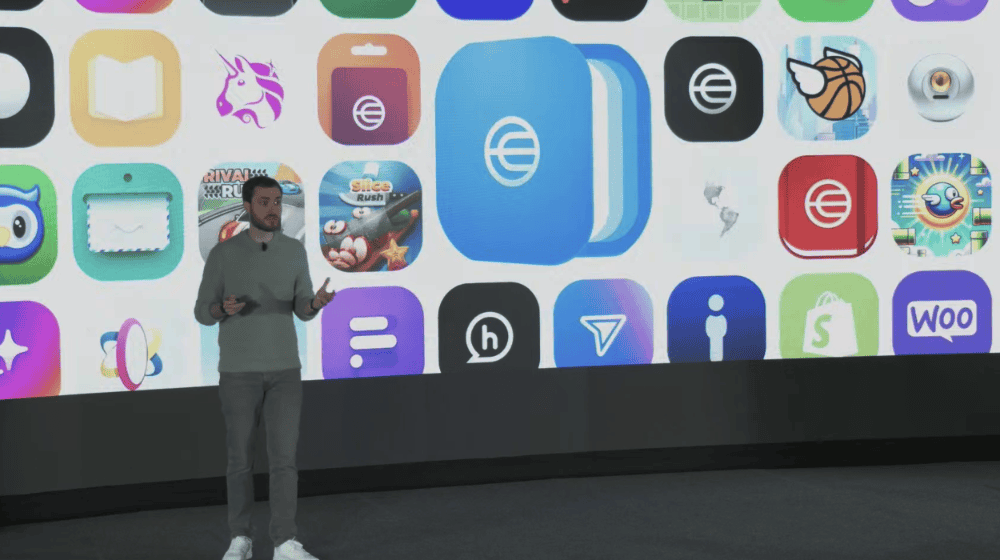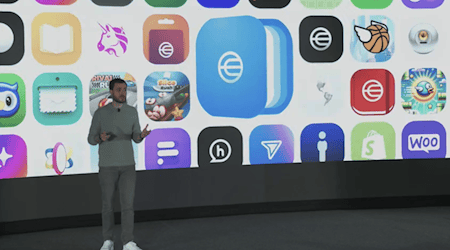Today's "A New World" conference saw a key innovation: WorldCoin is now called "World". With this rebranding, the project signals a significant change that underscores the expansion of the platform and the development of an entire ecosystem around digital identity and cryptocurrency.
World aims to make the internet and digital interactions more secure, transparent and trustworthy. Sam Altman, founder of ChatGPT, sees this as the foundation for a new digital era. The focus is on creating a global digital identity that ensures that only real people interact in the digital space. But alongside all the impressive growth plans, World also has to deal with data protection issues.
New orbs and distribution channels for WorldID and World
In order to make WorldID's technology more accessible, various new distribution channels for the orbs, the biometric verification devices, are being introduced:
- Flagship Stores: World's own stores where the orbs are available.
- Integration into existing stores: Orbs will be integrated into retail stores to increase availability.
- Orbs On-Demand: Orbs can be brought directly to people's homes via delivery services.
- Community Orbs: Communities can use local Orbs to ensure the identification of their members.
Introduction of WorldID 3.0
WorldID 3.0 introduces a new anonymous verification layer that makes it possible to identify people on the Internet without compromising their privacy. This technology is based on a decentralized protocol managed by various organizations, such as the University of Berkeley and the University of Zurich. AMPC (Anonymous Multi-Party Computation) ensures the security of data by not allowing any centralized body to access all information.
Fighting deep fakes through AI
World also presents a solution to one of the biggest problems of the modern digital world: Deep Fakes. With the help of AI technology, WorldID will be able to detect deep fake videos and thus prevent fraud. A real-life example: a fake CEO could try to instruct an accountant to make a bank transfer during a video call. However, World technology can ensure that the person seen in the video is actually the real CEO and not a digital fake. This offers companies in particular enormous security in the digital space. An SDK to integrate these functions into various platforms, such as Zoom, Google Meets or WhatsApp, will be released soon.
Introduction of the World Chain
Another milestone is the introduction of the World Chain, a new blockchain that was launched on October 17, 2024 with 15 million users - one of the largest blockchains in the world. This blockchain forms the backbone of the entire World ecosystem and will be made accessible via the World App 3.0, which not only offers a new design and enhanced community features, but also allows users to pay with World at providers such as Shopify.
World ID App Store and Super App
World is also building a new digital ecosystem based on WorldCoin's technology:
- Mini apps in the World ID App Store: An ecosystem similar to Apple's is emerging and allows users to interact via verified apps and services - always with the assurance that they are only dealing with real people.
- World Chat: A communication service that enables not only the exchange of messages, but also of money. Users who have been verified by an Orb receive a blue tick to confirm their authenticity.
The vision is that this super app will revolutionize digital life and put people at the center of interactions - even at a time when artificial intelligence is playing an increasingly important role.
Name change: WorldCoin becomes "World"
With the name change from WorldCoin to "World", it is clear that this is about much more than just a digital currency. A comprehensive ecosystem is emerging that aims to make the internet safer and more human.
Challenges and data protection
Despite all the impressive developments, data protection issues remain. The collection and processing of biometric data, such as iris scans, has raised concerns in countries such as Hong Kong, France, the UK and Kenya. However, World relies on a decentralized model where data remains stored on users' devices and promises to address these concerns through the use of technologies such as AMPC and strict security standards.
Conclusion: A project with great potential
World has the potential to fundamentally change the way we interact in the digital space. The scaling plans presented today show that the project is set for growth. If it succeeds in overcoming the challenges in the area of data protection, World could play a central role in the future of the Internet - as the foundation of a new era in which people and their identity take center stage.




